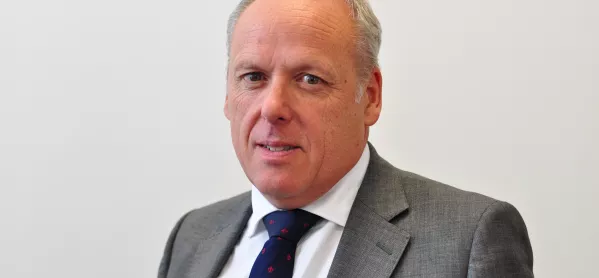There is now less than a fortnight to go until chancellor George Osborne announces the results of his spending review. Colleges, alongside local councils, the police, social care and many thousands - or indeed millions - of people in receipt of financial support from the state, nervously await his decisions.
After more than five years of austerity, everyone working in the public sector is used to receiving bad news. Even sectors that have their spending “protected”, such as the NHS, complain bitterly of hidden cuts.
So how do those of us who campaign for the interests of young people and adults in education and training make our voices heard above the cacophony?
The chancellor and prime minister David Cameron face some stark choices on education and training. They could decide to cut funding for 16-19 education even more and further slash the adult skills budget. If this happens, they need to understand the potential consequences and visualise the kind of education sector they want to see in 2020 and beyond.
I presume they want colleges to continue to provide a high-quality range of education and training options, together with a supportive and creative environment in which young people thrive. I also presume they would like skills training to be available to people not in work or working part-time.
There is a real and present danger, however, that people in government will instead continue to tie themselves up in the rules they have invented. For example, only funding for under-16s is protected and only apprenticeships seem likely to get any substantial funding for improving skills. Sometimes it appears that politics overrules the genuine educational needs of the nation.
We have all heard about the demographic pressures facing schools. I hope people in government realise that these children will become teenagers one day. By 2019-20, they will start to turn 16. There is a real likelihood that ministers and officials who oversee the downscaling of post-16 education now will want to put it back together at the end of this Parliament. In the five years after that, those who struggled to pass the new - and widely expected to be more difficult - GCSEs will be arriving at colleges hoping to improve their maths and English. We will need teachers and classrooms. And lots of them.
Alongside this, the skills challenges presented by our competitors around the world will not disappear in the next few years, but will instead become more significant.
One thing is certain: China won’t be cutting funding for education and training. Let’s hope our leaders don’t make that mistake.
TES is the premier media partner for the Association of Colleges’ annual conference, which runs from 17-19 November at the ICC in Birmingham
Want to keep up with the latest education news and opinion? Follow TES on Twitter and like TES on Facebook




